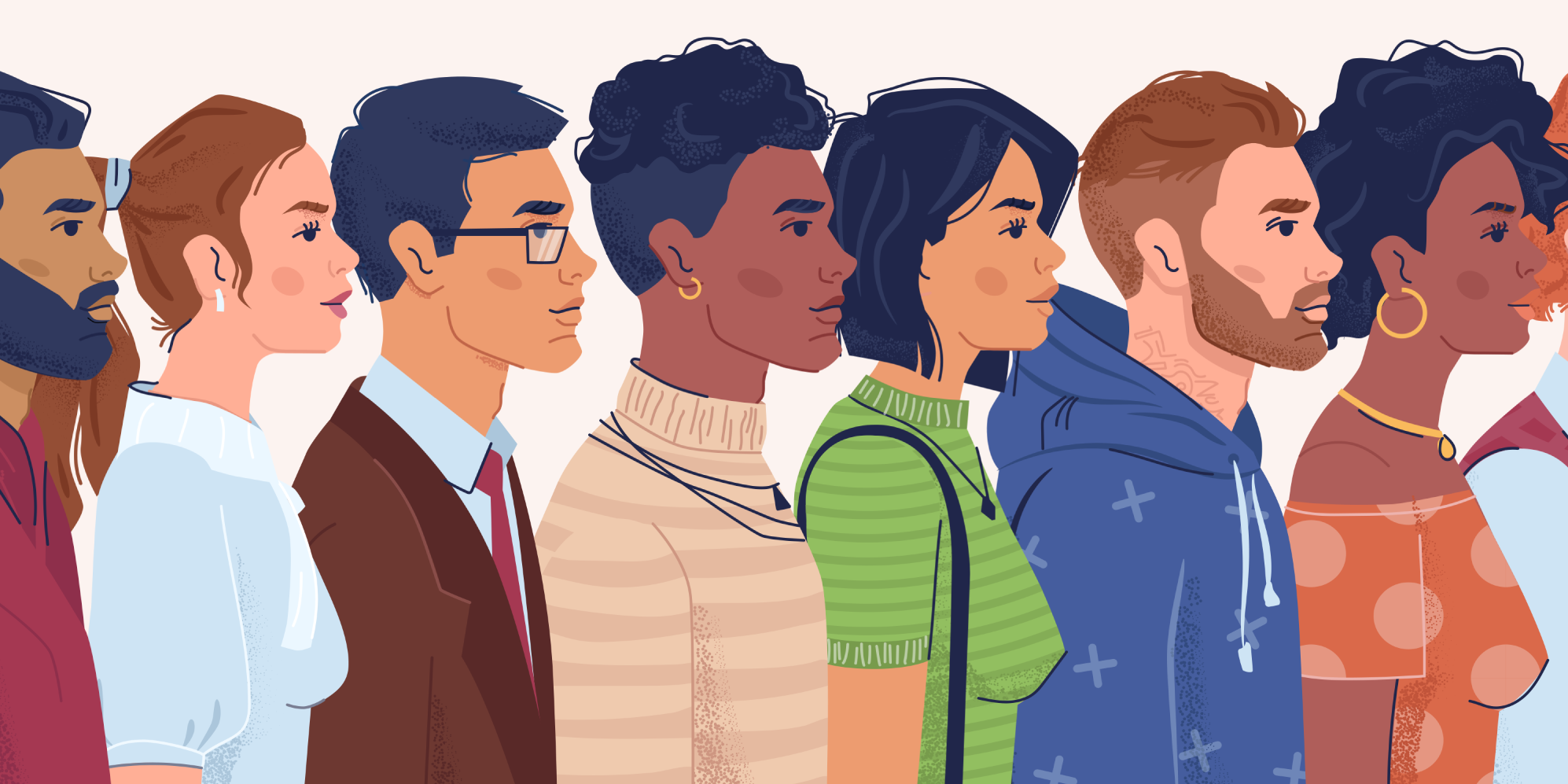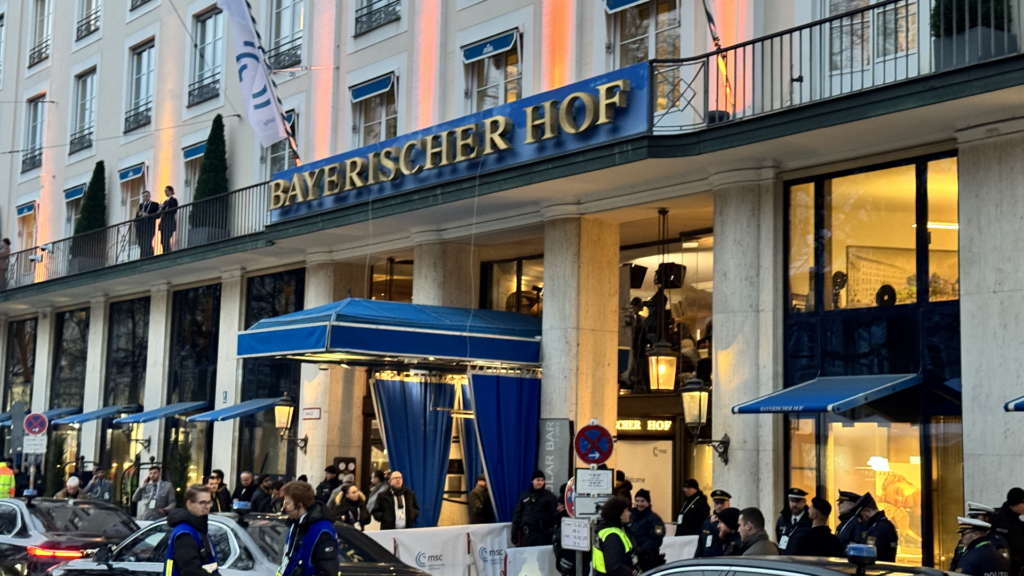Every year, the Dataminr community gets together to commemorate National Hispanic Heritage Month, which is observed from September 15 to October 15. This year, we’re once again honored and thrilled to celebrate our Hispanic/Latinx colleagues’ vibrant cultures and contributions to Dataminr.
As part of our continued efforts to amplify the voices of all Dataminr employees, I sat down with Daniel Calderon Valencia, Dataminr Procurement Director and Global Lead of the Amigos@Dataminr employee resource group (ERG), to discuss this year’s theme, “Unidos: Inclusivity for a Stronger Nation.” I asked for his thoughts on Latinx representation in the U.S., the most prominent issues facing the Latinx community and how we all can support our diverse employee base.
Check out what Daniel had to say.
This year’s theme is “Unidos: Inclusivity for a Stronger Nation.” Do you think inclusion and representation of the Hispanic/Latinx community within the U.S. has increased? If yes, in what ways? And which aspects still need improvement?
This year’s theme is “Unidos: Inclusivity for a Stronger Nation.” Do you think inclusion and representation of the Hispanic/Latinx community within the U.S. has increased? If yes, in what ways? And which aspects still need improvement?
Definitely. Latinx representation continues to improve every year. Our influences can be seen in the media, music, film, politics, literature, business and more. I think it’s a natural progression—we now make up 19 percent of all Americans and are the nation’s second largest racial or ethnic group, behind white Americans, according to the U.S. Census Bureau. It’s amazing to see many more Latinx break into and succeed in numerous aspects of society. Our contributions to the U.S. economy, culture and society are immeasurable.
But this doesn’t mean we can rest on our laurels. There’s still a lot of work to do to uplift the community both on the national level and within the tech industry.
Firstly, on the national level, we still need to increase awareness about issues facing the Latinx population, in particular U.S. immigration policies. This is a multifaceted and highly complex problem that I believe requires more action from the local and federal government.
Secondly, within the tech industry, I would like to see more Latinx in senior leadership roles and more access to better career opportunities—including mentorship—especially for those who come from a more disadvantaged background.
What are the biggest issues facing the Latinx community in the U.S. today? Why is it important for all people, not just the Latinx community, to be aware of them? And what can we all do to help?
As I briefly mentioned, there are still many issues impacting our community, such as immigration, representation, human rights and access to health and education. But they are not exclusive to the Latinx population—these issues affect so many other groups in the U.S.
I know there isn’t a magic wand that will solve these major issues quickly and completely. But what everyone can do is pay attention to and educate themselves on these topics, and then share what they’ve learned to raise awareness. Become more familiar with the community by making friends with a Latinx neighbor, hiring a Latinx and/or donating to an association or cause you believe in. Showing empathy and being open to learn about Hispanic and Latinx cultures goes a long way.
There are also a few things I’d like to encourage my fellow Latinx to do:
- embrace our own diversity more
- form robust, extensive networks so that we can better support each other—whether in the social or professional setting
- have a louder voice and advocate for policies and changes that will advance equity and justice for our communities
How will you support and/or celebrate your community in and outside of the workplace?
I didn’t actually celebrate National Hispanic Heritage Month in the past because, as an immigrant from Colombia, I didn’t see it as part of my culture and tradition. However, as I progress through my career and life in the U.S., I have become more interested and involved in celebrating the month. I realized I want to use the occasion to raise awareness about our Latinx community and help create meaningful allyship with other groups within the workplace and community.
What are some ways a company’s employees and leadership can be allies to their Hispanic/Latinx colleagues?
First, companies should offer employees the space and opportunities to amplify our voices, just as we’re doing now with this blog. Second, facilitate and support ERGs that provide an inclusive and welcoming environment for people of all backgrounds. Third, recognize and reward employees for their contributions.
Furthermore, I think it’s very important for organizations to continually demonstrate their commitment to diverse hiring. I really appreciate how Dataminr has a full team dedicated to improving diversity, equity and inclusion (DEI). It shows that the company takes DEI seriously and is determined to make real progress and help its diverse employee base flourish and thrive in their careers.
What is the Amigos@Dataminr ERG doing to celebrate this month?
As this year’s global lead of the Amigos@Dataminr ERG, I’m excited to present a series of fun and educational events for our members and the entire organization. I hope people will enjoy these activities and learn what we love most about our colorful, rich cultures. You can expect to see:
- A virtual cooking show featuring a professional chef to spotlight Latinx cuisines
- A podcast club where we’ll select a few podcasts and host discussions on the topic of Latinx identity
- A panel discussion to raise awareness about the issues facing the Latinx community
- A gathering where ERG members promote the music, culture and history of their countries, such as Colombia, Mexico and Peru
This month is a wonderful time to mark the achievements of Hispanic and Latinx Americans, and these events are truly excellent opportunities to bring our community and allies together. I appreciate and I’m proud that Dataminr continues to provide strong support for its ERGs and foster such an inclusive environment for all employees.



